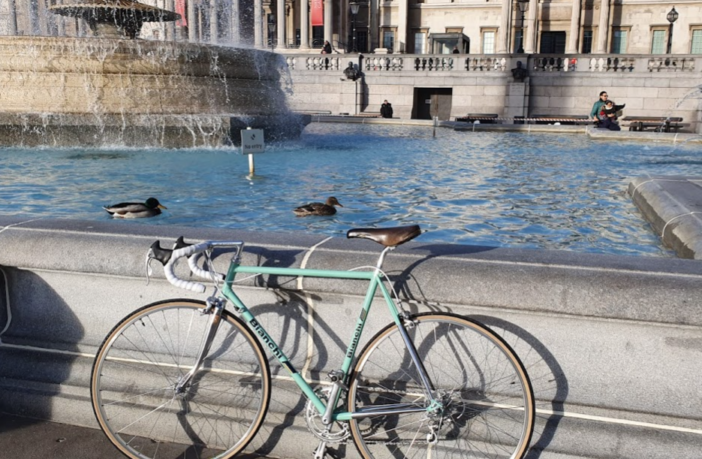The UK government has reiterated its ambition that half of all journeys and towns and cities should be cycled or walked by 2030.
Transport Secretary Grant Shapps, however also told the U.K. parliament’s transport committee on February 3rd in referring to ongoing levels of car use that the “committee for climate change points out that that might be a difficult balance to achieve.”
The target was initially set at launch of the government’s Gear Change strategy plans in July 2020. This document was hailed by the PM as a “revolutionary” £2 billion plan to increase cycling and walking.
At the time Johnson promised to “kick off the most radical change to our cities since the arrival of mass motoring.”
The plans were taken to heart by many local authorities in the UK which have been adopting schemes of their own creating traffic-free zones and limiting motor vehicle traffic.
Yet the local schemes have not been without their critics. In Hackney the low-traffic neighbourhood scheme has split the community with several groups suggesting that the move has exacerbated existing transport issues.
At the same time the UK government is working its already announced £27 billion road-building programme. Critics have also pointed out that it has been slow to legislate for the use of e-scooters and that a mooted e-bike scheme has not yet materialised.
Another issue is the impact that Covid19 could have on urban areas. If the pandemic-induced trend of home working becomes normalised then areas with high numbers of offices could find their core use changed potentially back to residential use. This could have a profound impact on the use of both personal and private transport.
At the committee Lillian Greenwood, the Labour MP for Nottingham South, pushed Shapps on future plans. After spending £2 billion on active travel in the next four years, Greenwood asked whether more cash will be forthcoming in 2025.
“There’s no way that we would stop spending in 2025 on something which we consider to be such a huge priority,” pledged Shapps.
Boris Johnson, like one of his predecessors David Cameron (and his erstwhile rival Jeremy Corbyn) is known for his love of cycling. For the introduction of Gear Charge he wrote. “The joy of cycling is that doing it doesn’t just benefit you. It doesn’t just make you happier. It doesn’t just make you healthier. It helps millions of others too, whether or not they have any intention of getting on a bike. It means less pollution and less noise for everyone. It means more trade for street-front businesses. It means fewer cars in front of yours at the lights.”
Yet realising the ambition of Gear Change may entail further tweaks to the UK government’s transport policies.




